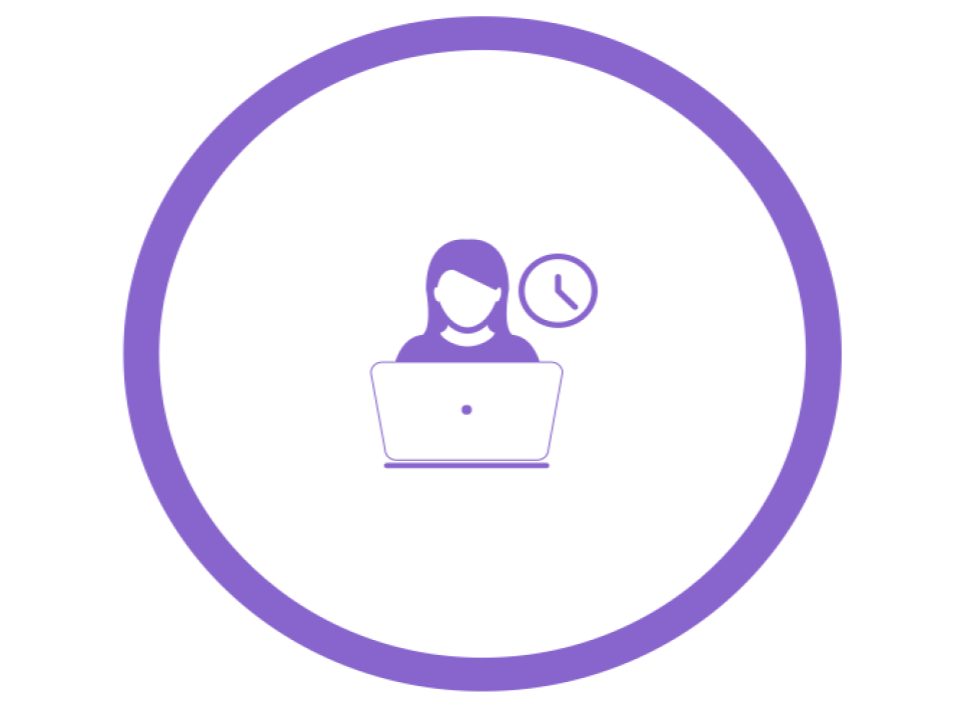Get into a Work State of Mind
Career Strategy, work mindset, productive work habits, happiness at work, productivity at work, impact at work
List of Services
-
Prioritize & PlanList Item 1
Defining priorities for your work is an integral part of being productive and successful in your role. Sometimes it may be necessary to identify what your goals should be for the day, while other scenarios require you to think ahead and plan objectives for the week, month, or quarter. Using a task/project-tracking tool can be a great way for you to begin identifying the areas where you're most efficient and inefficient. Keep in mind, it's important to be purposeful in your actions. Having a clear roadmap and anticipated outcome can help you achieve the results you need.
Some great ways of becoming a task-master can begin with:
- A simple paper checklist or planner. Don't worry folks, pen and paper never hurt anyone. The important thing here is to get your ideas down and outline those priorities of yours.
- Calendaring apps - Google (which also has a straight-forward checklist app called Keep), Outlook (which has the Microsft To-Do app), ZenDay (calendar and to-do task progress tracker in one), PocketInformant (calendar & task manager), and for those who love gamification CARROT To-Do is an engaging app that prompts you to be productive through humor (my only qualm, this app isn't offered on the Android platform. Bummer!)
- To-Do apps- ToDoist (gives you stats on task completion and multi-platform reminders), Wunderlist (can also be a great tool for team collaboration and task assignment), Things (manage your inbox, calendar, and tasks), Any.do (calendar, task list, & assistant all in one place)
- Workflow & Project Management apps(a great way to get your team in-sync and gain visibility on what your teammates are working on) - Asana, JIRA, Trello, Toggl (for time tracking and reporting)
-
Organize Your WorkspaceList Item 2
If you're like me and can easily get bogged down by the sheer sight of disorganization, cure your headache by clearing out the clutter. On average, we are devoting 1/3 of our lives to working, so it's no surprise that our general happiness can be affected by our time at work. Create a workspace that is conducive to you being not only productive but creative and staying motivated. Organize your work area in a way that makes sense to you, but keep it minimalistic to keep your focus on-track.
-
Take True Advantage of MeetingsList Item 3
Meetings often take up a lot of your time. So how are you supposed to get any work done? Organize your thoughts with an agenda. Even if you're not in charge of leading the meeting, coordinate your talking points with a master agenda! Meetings can be productive and can serve as an enabling force for you to get things done. However, knowing what you want out of the meeting can help you determine key talking points that keep the subject matter on topic while providing clarity. To keep it truly productive - limit the usage of tech devices, they'll only distract you from the main focus. Lastly, curb the negative talk - bringing up valid concerns can help others be aware of flaws but don't let the meeting be all about the bad points. Stick to the topics that will lead you and others to have a positive workflow.
-
Limit Multi-tasking
You're probably thinking this is counterproductive, but it's quite the opposite. I cringe when I hear the words "work harder", as people automatically assume this means DO MORE. But knowing your limits on what projects you can handle allows you to be more effective with your work & actually attain goals quicker. Biting off more than you can chew, just because you you can - doesn't mean you should. Remember to keep your goals realistic so you can actually achieve them. In the end, people will notice you're getting things done and will value your ability to yield results.
-
Delegate When FeasibleList Item 4
Ok, so maybe delegating work may be a bit of a stretch for many, but it's a component to the everyday routine that's worth exploring. More often than not, our coworkers love to know what everyone is working on, if you're vocal with what your current priortities are, you can communicate to others where they might be able to provide insight or extra help. Leveraging each others' strengths and interests allows us that exposure to becoming more versatile and knowledgeable of different approaches to challenges. Be sure to offer your help when your time permits as well. Remember that old adage "you scratch my back, I'll scratch yours."
-
Stay Current with Industry Trends
If you're reading this, you're already off to a great start! Being aware of current and emerging trends & strategies for your industry is essential to your professional growth. Expanding your knowledge in a subject matter can open so many doors to opportunities, it allows you to grow your social network in the process, and can lead to better engagement with your work. The more exposure, the better.
Some powerful resources that can help you even further include:
- Self Directed learning - LinkedIn Learning, Coursera, edX, Udemy, Udacity, Khan Academy, all offer some really great courses that enable you to learn what and when you want. They also offer certification pathways in a non-traditional format. Think straight-forward education that is cost-effective. For techies - HackerRank (an awesome way to practice those coding skills of yours, can prequalify you as a candidate for tech openings, & preps you for technical interviews!)
- Digital Adoption, AI, & User Experience platforms (for managers)- contribute to those around you by cultivating a culture of learning. So many things are changing in the work landscape, such as the programs we use, the delivery of our work, and the way we receive on-the-job training. Expanding platforms such as Appcues, AppLearn, Inline Manual, Iridize, Toonimo, WalkMe, & WhatFix offer new ways of learning how to do something at work while in the moment, and gets us up and running faster.
- Read- These days, most in-print content is available digitally. Quit making excuses for not reading and get in there, engage and research forums or discussion boards related to your work or industry.
- Your Social Network- It's not just a network of people, it's a network of knowledge.
-
Take Time to Regroup
Don't beat yourself up if you don't accomplish everything you set out to do to, in any given time frame. Make it a point to carve out time for yourself daily to think creatively about work challenges and how you can make the most out of your time going forward. Sometimes we get work fatigue because we overuse our 'burn-out' skills - that is the skills at which you excel, that people identify as your strengths but which drain you of motivation. Don't let your burn-out skills deplete you without re-energizing you. Create a healthy outlet for yourself to rethink your goals, relationships, & how you can turn failures into personal growth opportunities.
Don't be afraid to revisit what your motivational drivers are for work. What motivates you today, might not motivate you a couple years from now. So take the time every now and then to think about what keeps you going and devise a plan to find the right work environment that fosters the motivation you need.
-
And, lastly, track your accomplishments
It may not be second nature to record every "win" at work, but start by building that skillset list of yours. Time after time, when we're ready to make our next career move, updating our resume or online career profile is the one thing we dread and put off. Get ahead of the curve by capturing your achievements that make you stand out, when they happen. That way, you have more clarity and confidence to propel yourself into the next chapter of your career. Make sure you create a personal brand that showcases not just your experience, but your value.
Craving more? Check out these bite-sized tutorials!
-
Boost your Visibility @Work
MoreEasy steps to increasing your impact




